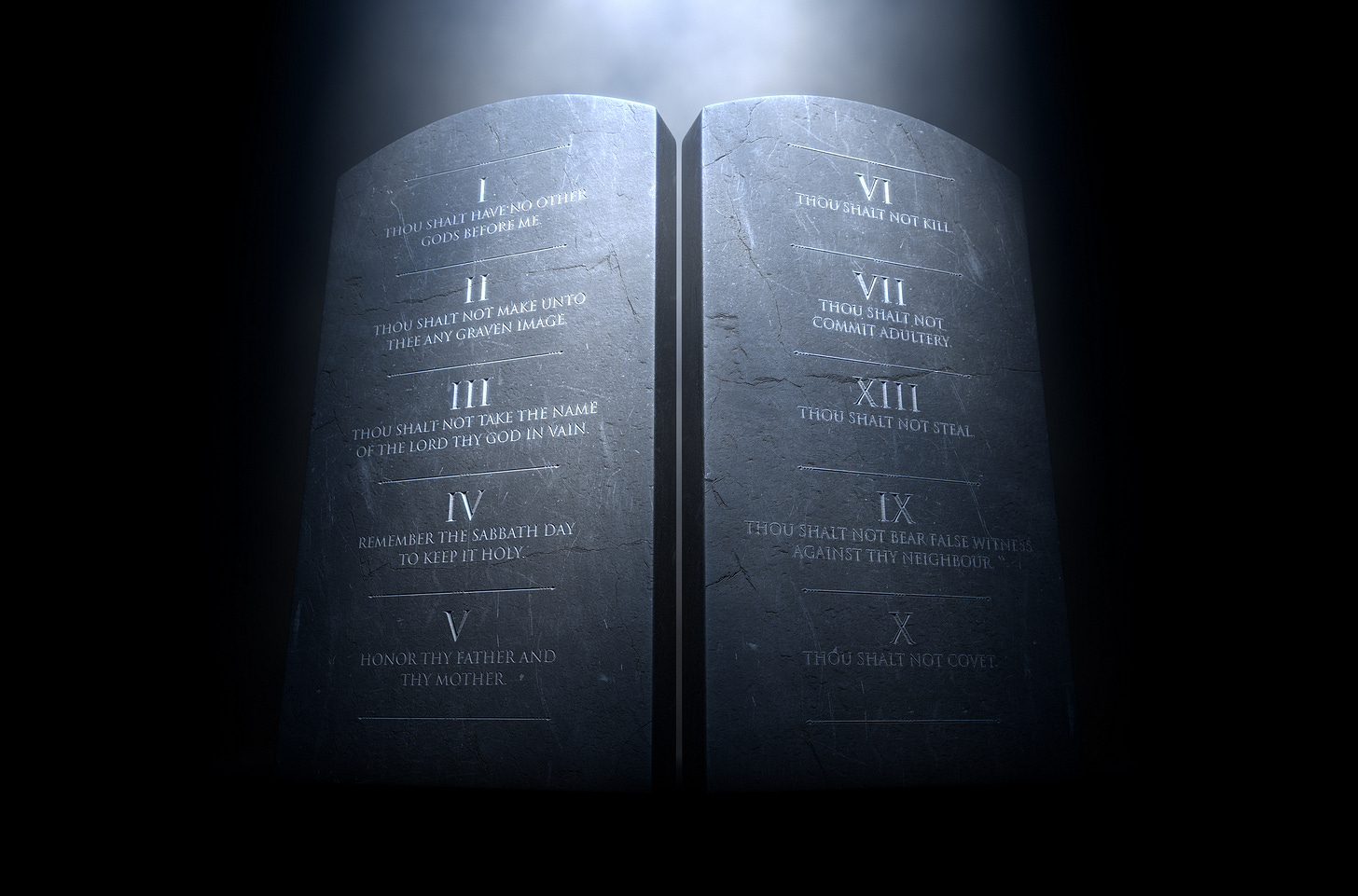Changing of the God
Morality is God's nature. We can't change it without changing Him.
Morality is a reflection of God’s nature, not just a list of dos and don’ts
Every disagreement we have with God is an indictment of His character and deification of our own
Our society is busy crafting a new god to replace the true God
Morality is God’s nature
We often make the mistake of believing that morality is a list of dos and don’ts1; that God put His finger to the wind and arbitrarily decided that some things, such as loving your neighbor, would be good while others, such as murdering your neighbor, would be evil. Since each of us is tempted by certain vices, we’d all prefer that some of the evil things had made it onto the “good” list, but alas God is God and we’re not, so we’re stuck with the rules as they are.
But while it’s true that whatever God declares to be good or evil is respectively good or evil, His declaration is not the determining factor here. Morality is not fundamentally a list of God’s proclamations, it’s a reflection of His character. Charity, for example, is good not because God said so but because God is charitable. Similarly, murder is not evil because God said so but because God is the source of life and justice, both of which are violated by murder.
An altered morality is an indictment of God
Morality is not a product of God’s invention, it is His nature; and because He is both eternal and unchanging, morality is eternal and unchanging, as well. It doesn’t matter what we as individuals or churches or entire civilizations have to say on the matter because it isn’t up for a vote.
We can, of course, choose to live by a different moral standard — one not in keeping with God’s character. Perhaps we prefer a modified morality that accepts most of God’s character, but tweaks it around the edges — fixing what He got wrong. Maybe we believe that homosexuality is no less moral than heterosexuality, or that stealing from the rich is redeemed by giving to the poor. We may regard these moral customizations as minor and harmless but they are far from it.
Whenever we substitute our moral judgement for God’s, we don’t just reject His laws, we reject Him because morality is a reflection of who He is. Every deviation from the moral law — every instance in which we reject the biblical standard — is an indictment of God’s character. We are effectively accusing Him of falling short of moral perfection. We are accusing Him of sin.
And who is therefore sinless in this scenario? Who is the standard of moral perfection? Why, we are, of course. If our moral sense is better than God’s then we are necessarily His superiors. And if we are His superiors then He, by definition, isn’t God.
Out with the old God, in with the new
God and morality are a package deal — we take both or neither. Any attempt to tailor morality to suit our predispositions is really an attempt to fashion for ourselves a new god — one made in our image.
We in the developed world may not have much use for deities made of wood or gold but those made of hash tags are all the rage. Whether it be #SocialJustice, #Equity, #Diversity, and #Inclusion or #MAGA, #Patriotism, and #USA, we are desperately attempting to raise some kind of flag above the Cross2; to find a god more palatable to our fallen nature.
Some of those gods bear a better resemblance to the actual God than do others, of course. A moral system that claims God is mostly right is clearly more accurate than one that claims He is mostly wrong, but a counterfeit is still a counterfeit no matter its accuracy.
So as we enter what our society now calls “Pride Month,” know that when you see a church flying the (modified3) rainbow flag you aren’t seeing a church with a different view of God, you’re seeing a church with a different god. And false gods cannot deliver us from hell, they can only deliver us to it.
There is only one moral standard because there is only one God. We may pretend otherwise — we may even believe otherwise — but reality is not affected by belief, no matter how sincere, or by social pressure, no matter how intense. Man may judge us in this life, but God will judge us after; and that god will be the true God, not one of our own making.
This is technically ethics, but the two terms popularly fall under the umbrella of “morality”
Hat tip to Brannon Howse for this turn of phrase
In contrast to the seven colors (ROYGBIV) of the actual rainbow, the “pride” rainbow has only six colors. Make of that what you will.



